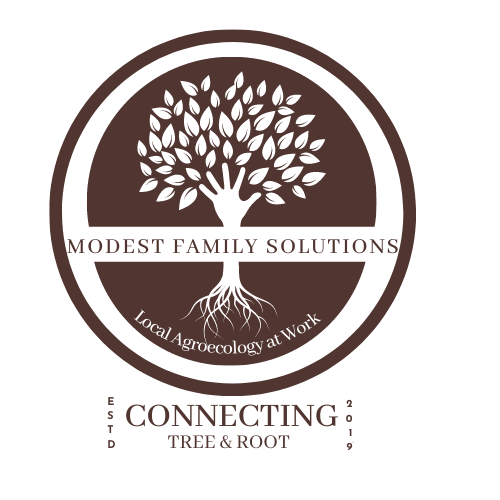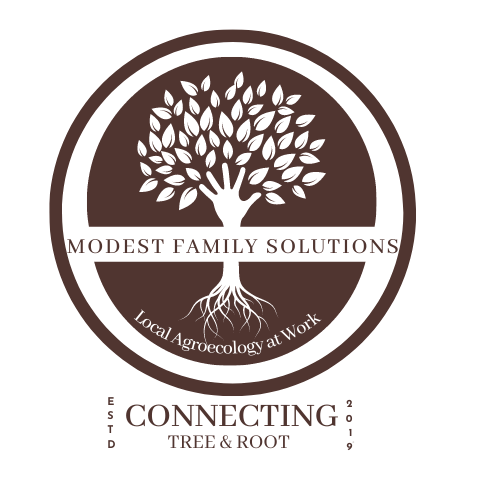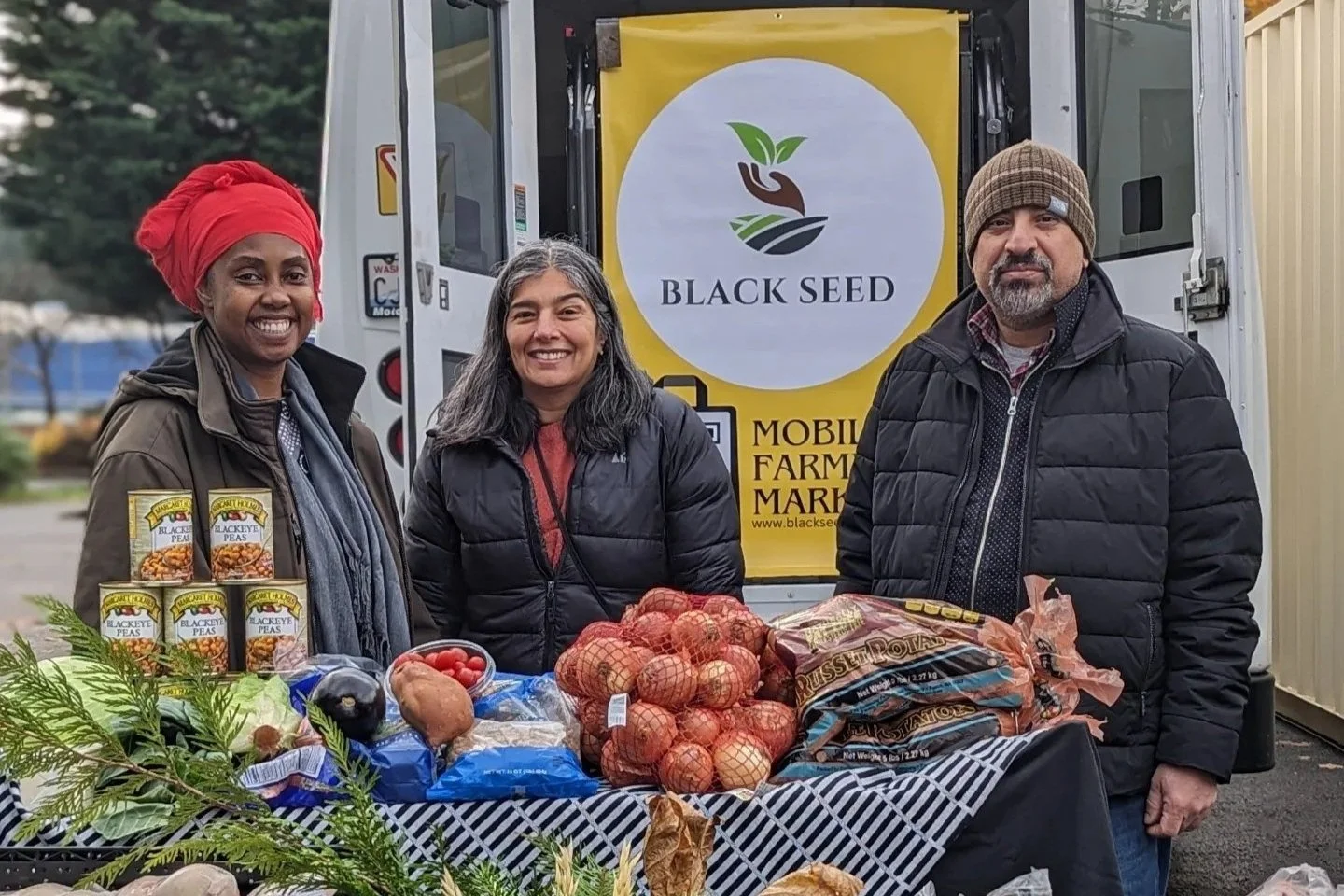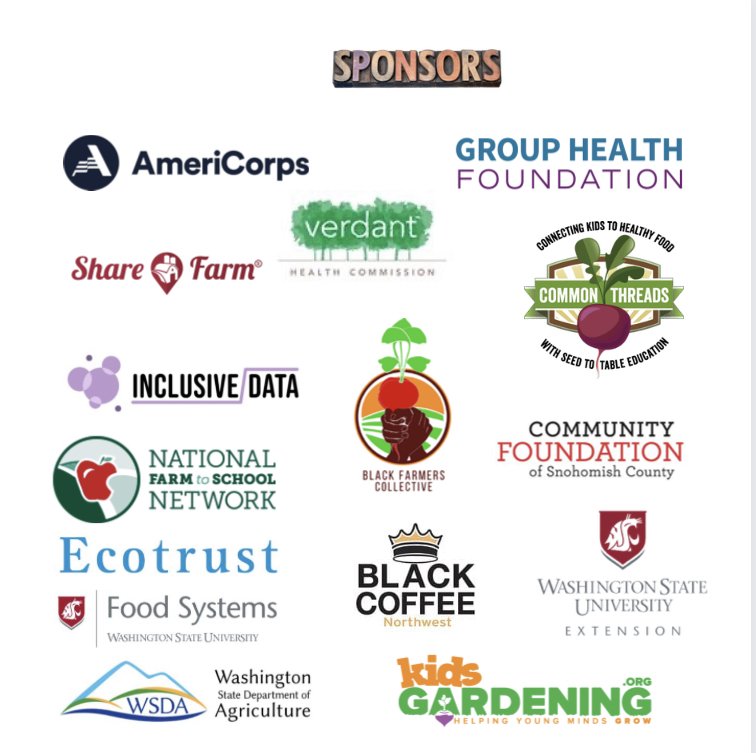
AN AGROECOLOGY SUPPLY CHAIN THAT EMPOWERS GENERATIONS OF COMMUNITY RESILIENCE. Pre Orders NOW AVAILABLE From BLACKSEED 20 WEEK Community Supported Halal Food Shares Starting MAY 2024!!!!
New Community Food Hub to Connect Farmers and Hunger Relief Organizations from King County DNRP on Vimeo.
King 5 Journalist Erica Zucco Joined MFS: Modest Family Solutions today as they smoked turkeys to raise funds to get food to people who need it and to provide #agroecology education -- just a part of their overall mission, which includes promoting #foodjustice & taking #climateaction through youth education and other programs. BlackSeed’s mobile market where you can buy fresh produce, halal meats, local food product and your $$ allows them to give food to someone else for free!
Social Solidarity Vision
FAQs
-
The Food Justice Movement works to ensure universal access to nutritious, affordable, and culturally-appropriate food for all, while advocating for the well-being and safety of those involved in the food production process. The movement aims to address disparities in food access, particularly for communities of color and low-income communities, by examining the structural roots of our food system. Food Justice addresses questions of land ownership, agricultural practices, distribution of technology and resources, workers’ rights, and the historical injustices communities of color have faced. Food Justice is closely intertwined with environmental justice and sustainability movements.- Boston University
-
Food sovereignty is a food system in which the people who produce, distribute, and consume food also control the mechanisms and policies of food production and distribution. This stands in contrast to the present corporate food regime, in which corporations and market institutions control the global food system. Food sovereignty emphasises local food economies, culturally appropriate, and sustainable food availability. This system centers indigenous peoples impacted by issues of food production and distribution, due to changing climates and disrupted foodways which impact the ability of indigenous populations to access traditional food sources, and contribute to higher rates of certain diseases. These needs have been addressed in recent years by several international organizations, including the United Nations, with several countries adopting food sovereignty policies into law. Critics of food sovereignty activism believe that the system is founded on inaccurate baseline assumptions; disregards the origins of the targeted problems; and is plagued by a lack of consensus for proposed solutions.
Watch more on food sovereignty here
-
A food desert is an area that has limited access to affordable and nutritious food, in contrast with an area with higher access to supermarkets or vegetable shops with fresh foods, which is called a food oasis. The designation considers the type and quality of food available to the population, in addition to the accessibility of the food through the size and proximity of the food stores. Read more from Karen Washington- Black Farmer
-
Yes, but the systems are not long-term sustainable practices which result to an increase waste that allows 1 in 9 go to bed hungry every night and despite producing the worlds food, farmers are the majority of those food insecurities.
Modest Family Solutions models the outstanding sustainability of Agroecology can be used as a tool to better food systems facing climate change
-
In July 2021, The Washington State Department of Agriculture funded the Washington State University Food Systems Program to conduct an assessment of the strengths, weaknesses, opportunities, and risks affecting Washington’s food system, with a special emphasis on identifying the needs and barriers of underserved, food-insecure Black and Indigenous and People of Color (BIPOC) and other socially disadvantaged communities. To accomplish an impactful result that offers a closer look at our food systems in holistic and equitable ways the assessment was conducted in collaboration with Modest Family Solutions a part team of BIPOC Leaders in the PNW.,
We are now pleased to share the results of this study in our report - Assessing WA Food Systems with an Equity Lens: Bridging the Gap Through A Culturally Relevant Food Approach
The purposes of this report are to:
• Identify ways to respond to sustained high rates of food insecurity exacerbated by COVID-19
• Identify food supply chain disruptions
• Identify disproportionate negative impacts on BIPOC Communities related to the COVID-19 pandemic
• Provide recommendations for next steps towards ensuring systemic equity in Washington State food security.
-
As supply chains continue to breakdown along with low wages and increase health disparities, we see in increases in the number of families going hungry or at least skipping up to 2 meals a day.
Check it out for yourself and spread the word. Feeding America Maps
-
Booker T. Whatley first introduced the concept in the 1960s as a solution for struggling Black farmers, but his contribution to modern agriculture has long been excluded from the dominant narrative.
-
Sliding scale pricing is when a product(s) or service(s) are priced differently based on individual ability to pay.
Sliding scales often give opportunities to people who may not be able to afford certain produce(s) or service(s) otherwise.
Modest Family Solutions Food Distribution Map
As a WeFeedWa fresh produce box distributor Modest Fam has several pickup location sites throughout Snohomish and King County. Thursday is deemed “Good Neighbor Day” Feel free to stop by and pick up a box to share with your community.
Not on the map? Contact us to be added










